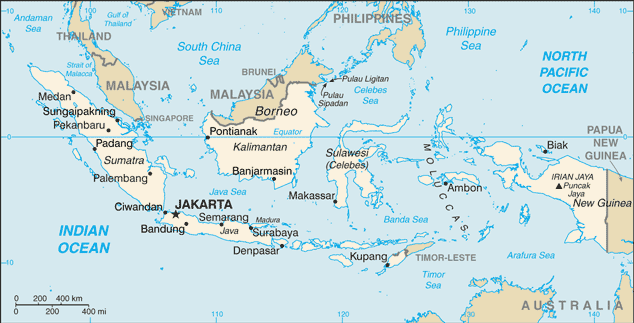Drug policy
- No special legislative provision for treatment and rehabilitation for people with SUD
- Treatment for SUD is not compulsory
- No availability of programmes that divert clients away from the criminal justice system towards treatment
Treatment and Recovery Services
- Government unit responsible for treatment services for SUD
- Budget line in annual budget for government for SUD services
- Out-of-pocket payment is the main way treatment services for alcohol and drug disorders are funded
- Three types of drug treatment systems in Indonesia: specialised treatment in Jakarta; integration of SUD treatment with mental health care in provincial areas; integration of SUD treatment with general health care, particularly providing methadone maintenance treatment (Jakarta, Bandung, Surabaya, Bali and Medan)
- Clonidine, Benzodiazepines, codeine and antipsychotics used as treatment for opioid dependence for detoxification
- GPs, primary health care workers and psychiatrists are the three key health care professionals involved in the treatment of those with alcohol use disorders
- Psychiatrists, GPs and psychiatric nurses are the three key health care professionals involved in the treatment of those with drug use disorders
- No NGOs in the country that focus on alcohol misuse
- Mandatory and voluntary drug rehabilitation programmes are offered by a variety of government, NGO, faith-based and private facilities.
-
Rehabilitation services under the Ministry of Social Affairs included case management, self-help groups and religious and spiritual counselling.
Prevention Services
- Government unit responsible for the prevention of drug use disorders only
- Budget line in annual budget of government for prevention of drug use disorders only
- Federal government is the most important financial source for prevention services for SUD
- Prevention services available via mass media channels, school-based programmes and community-based programmes
- Presence of a community-based needle exchange programme

